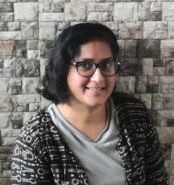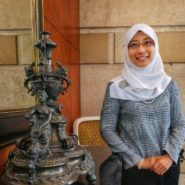The Studentships
The PhD studentships provide support for research projects on Commonwealth-related themes in the humanities and social sciences.
Two studentships are available each year, to the maximum value of £5,500 GBP each:
- One for students registered at UK universities
- One for students registered at universities in other Commonwealth countries
Applications STEM subjects are welcomed from a broad range of disciplines in the humanities and social sciences, but preference may be given to disciplines usually covered by the Round Table journal, including (but not exclusively) politics, international relations, economics, international history, geography, law, development studies, health and education policies, and area studies.
Applications in the pure sciences and medicine will not be considered, but studies relating to science and health policies are welcomed.
Proposed research must:
- relate to the Commonwealth as a whole or to any Commonwealth-wide institution or organisation, or
- have a Commonwealth comparative aspect, or
- be of relevance to more than one Commonwealth country.
For example, a research project comparing LGBT rights in South Africa and Uganda would
be eligible, as would a project on the reform of colonial-era anti-LGBT legislation in India, but
a project on the role of Stonewall in advocating for LGBT rights in the UK (with no comparative aspects) would most likely be unsuccessful. A project on media bias or election law comparing Canada with Jamaica or Australia would stand more chance of success than one which focused on such topics purely as they relate to Canada.
It is not expected that the applicant’s PhD/DPhil research already has a Commonwealth focus. Applications are particularly welcomed where the award will enable the applicant to add a Commonwealth dimension to the work.
The studentships are funded by The Round Table: The Commonwealth Journal of International Affairs and Policy Studies and the journal’s publisher, Routledge, in association with the Association of Commonwealth Universities (ACU).
Eligibility
The first studentship is open to registered PhD students from UK universities, although not necessarily UK citizens.
The second is open to registered PhD students from ACU member universities [https://www.acu.ac.uk/our-members/] in Commonwealth counties other than the UK, and to Chevening and Commonwealth Scholarship alumni who are PhD students at any Commonwealth university outside the UK.
Mentorship
As part of the studentship, applicants are required to identify and work with a mentor at a university in a Commonwealth country [https://thecommonwealth.org/member-countries] other than that in which they are based. This should be an expert in a subject linked to the applicant’s subject of research, who will be able to provide support and advice during the studentship. Before applying, applicants are encouraged to informally approach at least one potential mentor and, if their application is successful, will then be required to obtain a letter of support from their mentor to agree to the mentorship before their studentship is confirmed.
The role of the mentor
The mentor will be expected to hold a minimum of two virtual meetings with the student during the period of the studentship. They will be expected to be in contact with the student by email to share their experiences in their relevant field, provide advice around publishing, events and trends in their field, and to challenge and empower the student to consider new ways of thinking.
The mentor will also be expected to contribute to either the podcast or the article that the student is expected to produce at the end of the studentship (see below) and will be paid an honorarium of £500 GBP, payable at the end of the studentship. Mentors must read and abide by the mentor code of conduct guidelines [https://www.acu.ac.uk/funding-opportunities/for-students/fellowships/routledgeround-table-commonwealth-studentships/mentor-code-of-conduct-guidelines/].
Post-studentship requirements
Successful applicants will be required to submit, no more than twelve months after the take-up of the award, an article of between 4,000 and 6,000 words based on their research, for consideration for publication in the Round Table journal. Successful applicants will also be required to make a podcast on their research, for publication on the journal’s website.
Payment of the award
£4,000 GB will be paid on the announcement of the awards. The remaining £1,500 GBP will be paid on completion of the post-studentship requirements.
How to apply
Download the application form here and return as per the instructions.
You will need to outline your proposed research topic, intended outcomes, the likely impact
of your research, and how the award would benefit your research.
In addition you will need to nominate a potential mentor (whom you are encouraged to
approach before applying); and also and two referees (one of whom should be your
PhD/DPhil supervisor) who have agreed to comment on your research proposal and your
own abilities and potential. We do not need to take up the references until after short-listing.
Closing date
The closing date for this round of awards is 31 July 2025. Applicants will be notified by mid-
September.
Holders of the 2024-25 awards
The winner of the 2024-25 award for a PhD student registered at a member university of the ACU outside the UK is Shalabh Chopra.

Shalabh is a PhD student at the Department of Media and Communication within the School of Language, Social, and Political Sciences at the University of Canterbury, New Zealand.
Shalabh been actively engaged in the Public Diplomacy-Political Communication Forum at the University of Canterbury as a student researcher. He also works as a researcher within an international Jean Monnet Policy Network, ‘EU-Ukraine heritage diplomacy’, supported by Erasmus+ and the European Commission, in which he undertakes media analysis of Indian media narratives about Ukraine’s cultural and historical heritage in the context of the full-scale invasion by Russia.
Shalabh’s PhD research focuses on narratives of India’s foreign policy in the context of escalating geopolitical tensions between the US and China. He analyses narratives of India’s foreign policy in thinktank publications, media, and parliamentary archives as a pivotal metric to gauge how India has been navigating these choppy geopolitical waters. From a theoretical point of view, he makes connections between narratives of (i) India’s emerging role as a balancing power, (ii) its self-identity as an ethical civilizational state, and (iii) the geopolitical context of US-China tensions in which these signifiers of role and identity play out.
With the Routledge/Round Table Commonwealth Studentship award, Shalabh aims to improve the quality of his research by being able to access news websites hidden behind paywalls, fund a fieldtrip to India to conduct interviews with foreign policy elites and media professionals reporting on India’s foreign policy, and attend workshops on computational social science.
The winner of the 2024-25 award for a PhD student registered at a university in the UK is Rianna Patterson.

Rianna Patterson is a Dominican PhD candidate in applied psychology at the University of Nottingham. She is the founder of the Dominica Dementia Foundation, which she founded at eighteen in memory of her grandfather. She has been a voice for older people in forums such as the Commonwealth Heads of Government Meeting. She was one of the principal authors and researchers on the report, ‘Dementia in the Commonwealth’, that was launched by the Commonwealth Ageing Association (CommonAge) at the International Dementia Conference in Australia. Her contributions to this report included providing autobiographical data from young people’s contributions in several Commonwealth countries on dementia advocacy as well as local government involvement in this field.
Rianna has a bachelor’s degree in psychology from the University of Kent and completed a master’s degree in dementia at University College London, where her thesis focused on ‘Dementia Policies in Caribbean Communities’. To her knowledge this was one of the first publications to focus on English-speaking Caribbean countries. Her research fits in a global agenda of developing national dementia plans as suggested by the World Health Organisation.
Rianna intends to use the Routledge/Round Table Commonwealth Studentship award to contribute to improving the quality of lives of people living with dementia in marginalised communities including African and Caribbean populations, by creating evidence-based research that could influence systematic and health policy change in Caribbean countries in engagement with global organisations such as the Commonwealth Secretariat and the Commonwealth Foundation.
Winners of the 2023-24 awards
The winner of the 2023-24 award for a PhD student registered at a member university of the ACU outside the UK was Robert Nadoi Masaba.

Robert is a Gerda Henkel PhD Fellow attached to Makerere University’s Department of Journalism and Communication. He took his Bachelor’s degree at Makerere and has a Master’s degree in Media and Public Relations from Newcastle University. He has extensive experience in Uganda’s media industry and is currently managing editor of the Saturday Monitor and Sunday Monitor. He writes a weekly column in the Saturday Monitor, and has previously served as sports editor of NTV Uganda and deputy news editor of The Weekly Observer newspaper.
Robert’s research interests are in unruly rhetorics, unruly publics, dissent, bodily assemblage, and rhetorical refusal(s). He intends to use the Routledge/Round Table Commonwealth Studentship award to continue his research on the deployment of rhetorical refusals by Uganda’s unruly publics on digital spaces. The qualitative study examines to what end Ugandans are turning digital spaces into ‘grotesque symposiums’. To better understand this, his study makes a juxtaposition with the unruliness that was on full display in late colonial Uganda. The study comes against the backdrop of claims that President Yoweri Museveni’s hybrid regime—in power since 1986—has left the East African nation caught in the crosshairs of a democratic reversal.
The winner of the 2023-24 award for a PhD student registered at a university in the UK was Sarah Nyczaj Kyle.
 Sarah holds a BA in Business Management with Applied Social Sciences from Lancaster University and a MSc in Psychology from Northumbria University. Her PhD considers the mental well-being of people from farming communities. She is researching how well-being can be improved by building resilience to farm-specific stressors. She has a background of over twenty years in the agricultural sector, being both a farmer’s wife and mother of a young farmer. Her knowledge of the agricultural industry comes from a real-life perspective, since she is embedded within the issues being faced by farmers and their families.
Sarah holds a BA in Business Management with Applied Social Sciences from Lancaster University and a MSc in Psychology from Northumbria University. Her PhD considers the mental well-being of people from farming communities. She is researching how well-being can be improved by building resilience to farm-specific stressors. She has a background of over twenty years in the agricultural sector, being both a farmer’s wife and mother of a young farmer. Her knowledge of the agricultural industry comes from a real-life perspective, since she is embedded within the issues being faced by farmers and their families.
As part of her research, Sarah is developing a scale to measure farming-related stress. She will use the Routledge/Round Table Commonwealth Studentship award to extend the validation of this scale to include the Canadian farming community. The scale will be tested for concurrent and discriminant validity in the UK and Canada, using a large enough sample to ensure generalisability. The information gathered will help to understand farmers’ wants and needs better and, importantly, enable cross-country comparisons. Evaluation of the similarities and differences across farming populations will facilitate sharing of best practice and the devising of successful interventions to build resilience in farming communities. The data will provide the evidence base for intervention programmes that will have real world tangible impact on people’s lives, as well as being academically robust. Sarah intends that her findings will be adapted for dissemination to a farming audience and at relevant agricultural events.
Update: Sarah has produced a podcast about her research work.
Winners of the 2022-23 awards
The winner of the 2022-23 award for a PhD student registered at a member university of the ACU outside the UK was Romitesh Kant.

Romitesh has been a PhD student at the Department of Pacific Affairs within the Coral Bell School of Asia Pacific Affairs at the Australian National University. His research examines the symbiotic relationship between politics and masculinities in Fiji.
Romitesh will be using the Routledge/Round Table Commonwealth Studentship award to pursue initial fieldwork in Fiji during the upcoming Fijian general elections to explore the myriad ways through which the historically and socially created concepts of gender, race, and other social identities are experienced and how these concepts are inextricably linked to masculine identities in Fiji. In doing so, he traces how masculinities are produced and performed—tracing many masculinities constructed and performed concerning other masculinities, revealing how masculine power and state power are multilayered, valorised, and challenged.
The winner of the 2022-23 award for a PhD student registered at a university in the UK was Victor Agboga.

Victor Agboga is a Nigerian PhD student at the Department of Politics and International Studies, University of Warwick. He has worked as a student missionary, a news writer in several media outlets in Nigeria, and a teaching assistant in the United Kingdom. He also owns a YouTube channel with over forty thousand subscribers as of September 2022, where he shares international scholarship tips and opportunities.
Victor has a bachelor’s degree in philosophy from Imo State University, Nigeria, a master’s in global governance and development from the University of Duisburg-Essen in Germany, and another in African development from the London School of Economics. His research revolves around African politics, African political economy, human security, and international development.
Victor’s research interrogates, both quantitatively and qualitatively, how voters respond when their elected politicians change political parties – whether they punish or reward them, in a non-Western context. He particularly examines this phenomenon in Africa, using Nigeria, the biggest democracy on the continent, as a case study. His research sits against the backdrop of ongoing debates on voters’ agency and party institutionalisation in Africa.
Update: Victor’s research article in The Round Table Journal.
A second holder in 2022-23 of an award for a PhD student registered at a university in the UK was Abraham Murad. Abraham won the award for 2021-22 but chose to defer his award until the 2022-23 academic year.

Abraham is a DPhil researcher in the Faculty of History at the University of Oxford. He has a master’s degree from Royal Holloway, University of London. His dissertation was shortlisted for the 2021 British Association of South Asian Studies’ MA dissertation prize.
Abraham’s DPhil project investigates transformations in the nature of Christian identity, politics, and community in the Punjab region of north India during the upheavals of the twentieth century, asking how challenges of caste, economic crises, the violence of partition, the evolution of the modern nation-state, and war, have been negotiated by missionaries, religious thinkers, and everyday practitioners of Christian communities. It evaluates this development as an interaction of Indian ‘untouchable’ and ‘high caste’ groups with missionary institutions within colonial and postcolonial structures. It is therefore a study of the development of their particular subjectivity, and politics of community, consensus, and self-representation. In doing so this project injects a new perspective into a historiography characterised by a lack of vernacular sources and dominance by western scholars.
Punjab is an especially provocative terrain on which to explore these issues. As a site that saw the development of the world’s largest irrigation system, unprecedented economic transformation, mass religious conversion and revival movements, and a decided influence on India and Pakistan’s early trajectories, it offers us an opportunity to enrich our understanding of not only the immediate region but also dynamics which influenced the institutional and cultural histories of the two sub-continental nation-states.
Winners of the 2021-22 awards
The winner of the 2021-22 award for a PhD student registered at a member university of the ACU outside the UK was Elza D’Cruz.

Elza is a doctoral candidate at the Manipal Academy of Higher Education (MAHE), based at the Srishti Manipal Institute of Art, Design and Technology, India. She has a Bachelor’s in Architecture from the University of Kerala (2003) and a Master’s in Urban Design from R. V. College of Architecture, Bangalore (2010). In May 2021 she was selected as a participant for the Dumbarton Oaks Garden and Landscape Studies workshop on public landscapes and public health.
Elza’s PhD research looks at the public garden as a space of negotiation between the colonial and the local in Bangalore under British rule. She plans to use the Routledge/Round Table Commonwealth Studentship to investigate how the colonial circulation of plants and garden ideas to Bangalore, from other parts of the British Empire, such as Australia, shaped the public garden practice in Bangalore and the connections these gardens had to a progressive and healthy Mysore State between the mid-nineteenth and mid-twentieth centuries. She also intends to investigate the nature of agency of the local – people and land – in the making of these landscapes by recording the oral histories of local gardening communities and the mapping of gardens.
One of Elza’s post-studentship aims is to produce a research piece for The Round Table on how the situated history of the public gardens in Bangalore connects to the global history of colonial garden exchanges, with a critical understanding of the notions of public health and gardens in formerly colonized societies.
Update: Elza’s research article in The Round Table Journal.
Elza has produced a podcast about her research.
Winners of the 2020-21 awards
The winner of the 2020-21 award for a PhD student registered at a member university of the ACU outside the UK was Navida Bachan.

Navida is studying for a PhD in Governance at the Sir Arthur Lewis Institute of Social and Economic Studies, University of the West Indies, St. Augustine, Trinidad. She holds a BSc in Economics and an MSc in Development Statistics with a specialization in Social and Demographic Statistics, both from UWI. In 2017 she was the recipient of the Jack Harewood award for most outstanding student on the MSc in Development Statistics programme. She spent a semester at the University of Alberta as a visiting graduate student, expanding her knowledge of mixed-methods research for her PhD whilst enhancing her skills through International House’s Global Leadership Development programme.
Navida’s PhD research investigates health system governance and its impact on the performance of health systems within the context of Trinidad and Tobago, and in relation to the United Kingdom. Navida has a special interest in the tenets of participatory governance in the health sector, and how it has been applied in Commonwealth contexts that have facilitated improved health outcomes for populations. Her professional work as a researcher in the Trinidad and Tobago health sector, both at the national and sub-national levels, has contributed significantly to her insights about health system governance and its link to health system performance, and subsequently healthcare delivery.
Navida will be using the Routledge/Round Table Commonwealth Studentship award towards understanding key governance components within the United Kingdom’s National Health Service. Specifically, her study of the NHS will begin with a review of key legislation, and culminate in interviews with health officials. She envisions her findings being translated into policy measures that contribute towards the overall strengthening of the Trinidad and Tobago health system as well as those of developing countries more generally.
The winner of the 2020-21 award for a PhD student registered at a university in the UK was Rob Cullum.

Rob is currently a PhD researcher at Aberystwyth University’s International Politics Department. He graduated from Monash University with an honours degree in History, and subsequently undertook a Master’s degree in Strategic Studies at the Australian National University, where he was the 2016 Robert O’Neill scholar. He interned with the International Institute for Strategic Studies in Singapore, where he worked on the Shangri-La Dialogue and undertook a research project on Singaporean strategic dynamics in relation to the US-China strategic rivalry. He has also worked for the Australian government.
Rob’s current research focuses on the naval response to climate change in the United Kingdom, Australia, and the United States, seeking to understand how organisational forces shape each navy’s response.
Rob is using the Routledge/Round Table Commonwealth Studentship award to fund several purposes. His main aim will be to produce a research piece for The Round Table comparing Britain and Australia’s military and humanitarian activities among small island states in the Caribbean and the South Pacific. If the international health situation permits, he will also pursue fieldwork in the US to help better set the context for this piece and for his PhD work, through interviewing naval officials and experts.
Catch up with Rob’s research article on Comparing Australian/South Pacific and UK/Caribbean relations and the link to his August 2021 podcast or you can open it via the Spotify app.
Winners of the 2019-20 awards
The winner of the 2019-20 award for a PhD student registered at a member university of the ACU outside the UK was Nurulhuda Zakariya.

Nurulhuda is a judicial officer in Malaysia by profession and currently a full-time PhD student at the University of Malaya. She graduated from International Islamic University Malaysia in August 2008 with an LLB (Hons), and, as a Chevening scholar, took an LLM in Comparative and International Dispute Resolution from Queen Mary University of London (QMUL). She also holds a Diploma in Islamic Banking and Finance Arbitration from the Chartered Institute of Arbitrators and a Certificate of Mediation from Royal Roads University.
Nurulhuda’s PhD research focuses on judicial independence within the context of the subordinate judiciary and specifically the magistracy, examining legal concepts and judicial independence principles, and their application in the Malaysian magistrates’ courts as compared with the Indian and UK magistracies.
She still intends to use the Routledge/Round Table award to fund a visiting research studentship at QMUL, under the guidance of a host supervisor, Professor Kate Malleson. During this time, as well as accessing library and other materials and attending seminars and conferences, she hopes to conduct direct observation sessions in a UK magistrates’ court in order to gain a better first-hand understanding of the magisterial concept and judicial administration as developed and practised in the UK. She also hopes to conduct semi-structured interviews with relevant academics based in the UK, UK district judges, and magistrates, and set up engagement sessions with relevant agencies such as the Ministry of Justice, Courts and Tribunals Judiciary, and Judicial Appointments Commission.
Read Nurulhuda’s research article on The Commonwealth Magistrates’ and Judges’ Association (CMJA) Brisbane Declaration: a brief assessment of magisterial independence in Malaysia here.

The winner of the 2019-20 award for a PhD student registered at a university in the UK was Sukhgeet Kaur, currently a student in the Department of Land Economy, University of Cambridge.
Sukhgeet took a BA (Hons) and a Master’s degree in Economics from Panjab University, Chandigarh, funded by scholarships, later also winning a Dharam Hinduja ODA scholarship to complete an MPhil degree in Development Studies at the University of Cambridge. More recently she has earned an LLB degree and completed a Public Policy course at the University of California, Berkeley, sponsored by the Government of India.
A civil servant by profession, Sukhgeet belongs to Group A service of the Indian Administrative Service and Allied Services in the Government of India. She is currently posted to the National Institution for Transforming India (NITI Aayog), a premier Government of India think tank. At NITI Aayog, she has dealt with project appraisal of important ministries, industrial policy and trade strategy, and agricultural marketing and price policies. In her previous assignment at the Ministry of External Affairs, she handled India’s bilateral relations with important partners in South Asia and South-East Asia and investment trade promotion policies.
Sukhgeet was selected by the Department of Personnel and Training, Government of India, for partial funding for her PhD research at the University of Cambridge. Her research focuses on policy interventions to ameliorate the economic shocks faced by Indian farmers. Farmers in Punjab and Haryana contribute substantially to food stocks, yet face acute distress. The subject has wider significance as farmers across the Global South face vulnerability and there is an urgent need to investigate new policy interventions.



